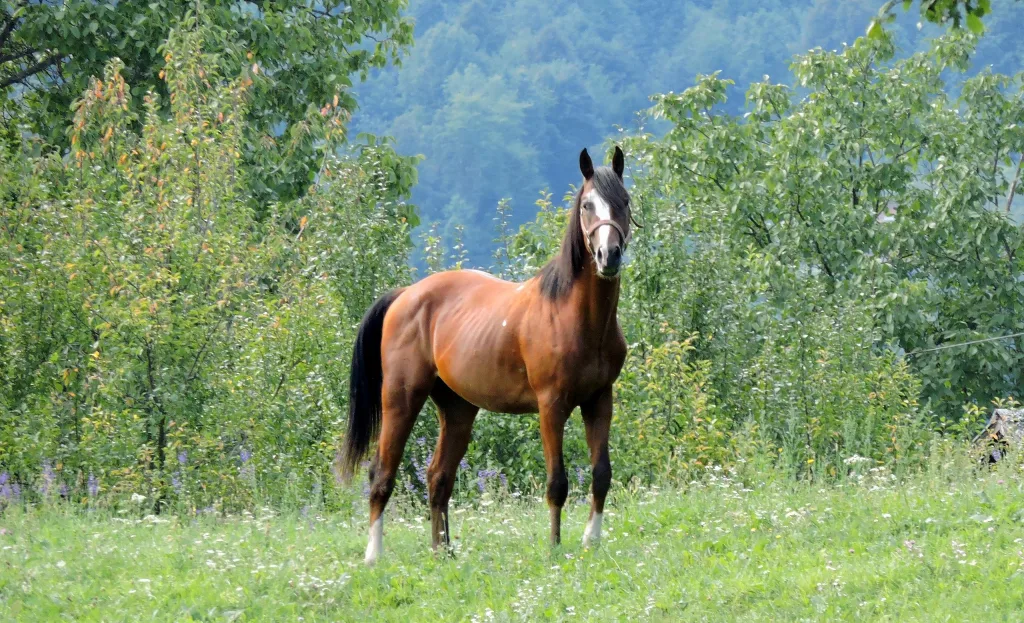What Are the Signs That a Horse Has Worms?

Worm infestations in horses are a common concern for horse owners and caretakers. These parasites can cause various health issues and discomfort for the animals if left untreated. Understanding the signs and symptoms of worm infestations is crucial for early detection and effective treatment. In this blog post, we will explore the signs that indicate a horse may have worms, along with preventive measures, treatment options, and additional insights into managing worm infestations in horses.
Understanding Worm Infestations in Horses
Worms, also known as internal parasites, can infect horses through ingestion of contaminated food, water, or pasture. Several types of worms can affect horses, including strongyles, roundworms, tapeworms, and bots. These parasites can reside in the horse’s digestive tract, causing damage to the intestines, malnutrition, weight loss, and other health issues if not controlled.
Signs of Worm Infestations
- Weight Loss and Poor Body Condition: One of the most common signs of worm infestation in horses is unexplained weight loss or poor body condition despite a regular feeding regimen. Worms consume nutrients from the horse’s digestive system, leading to a lack of essential nutrients for the horse’s overall health.
- Dull Coat and Rough Hair: Worm-infested horses may exhibit a dull, rough coat with patches of hair loss. This can be attributed to the nutritional deficiencies caused by the parasites, affecting the horse’s coat quality and overall appearance.
- Lethargy and Decreased Performance: Horses with worm infestations may show signs of lethargy, reluctance to move, and decreased performance during exercise or work. Parasites can cause fatigue and weakness due to nutrient depletion and discomfort in the digestive tract.
- Potbellied Appearance: Some worms, such as roundworms, can cause a potbellied appearance in affected horses, especially young foals. This distended belly is due to the accumulation of worms in the intestines, leading to bloating and discomfort.
- Visible Worms or Eggs in Feces: In severe cases of infestation, horse owners may notice adult worms or eggs in the horse’s feces. These can vary in appearance depending on the type of worm and are a clear indicator of an ongoing infestation that requires immediate treatment.
- Colic and Digestive Issues: Worms can irritate the horse’s digestive tract, leading to symptoms such as colic, diarrhea, or constipation. Colic episodes in horses should always be taken seriously and evaluated by a veterinarian promptly.
- Poor Growth in Young Horses: Foals and young horses are particularly susceptible to worm infestations, which can hinder their growth and development if not addressed promptly. Regular deworming protocols are crucial for maintaining the health of young horses.
Preventive Measures for Worm Control
- Pasture Management: Proper pasture management practices, such as regular mowing, manure removal, and rotational grazing, can help reduce the spread of worm larvae in the environment, minimizing the risk of infestation.
- Regular Deworming: Implementing a strategic deworming program recommended by a veterinarian is essential for controlling worm infestations in horses. Different types of dewormers target specific parasites, so a targeted approach based on fecal egg counts and seasonal considerations is advisable.
- Quarantine and Hygiene: New horses entering a stable should undergo a quarantine period to prevent the introduction of parasites to resident horses. Maintaining good hygiene practices, such as regularly cleaning water troughs and feeding areas, can also reduce parasite transmission.
- Fecal Egg Counts: Periodic fecal egg counts performed by a veterinarian help assess the worm burden in individual horses, guiding deworming protocols based on actual need rather than routine administration.
Treatment Options for Worm Infestations
- Anthelmintic Dewormers: Various anthelmintic dewormers are available to treat worm infestations in horses. These medications target different types of parasites and should be administered according to veterinary recommendations and deworming schedules.
- Strategic Deworming: Tailoring deworming protocols based on fecal egg counts and seasonal factors helps prevent the development of dewormer resistance in parasites while effectively controlling infestations.
- Follow-Up Monitoring: After deworming treatment, monitoring the horse’s fecal egg counts and overall health is important to ensure successful parasite control and adjust management practices as needed.
Additional Insights
- Grazing Management: Limiting grazing in high-risk areas such as overgrazed pastures or areas with standing water can reduce the risk of worm infestations.
- Environmental Control: Regularly cleaning and disinfecting water troughs, feeders, and stalls can help minimize parasite contamination in the horse’s environment.
- Rotational Deworming: Working with a veterinarian to develop a rotational deworming plan based on specific parasites and seasonal considerations can optimize parasite control while reducing the risk of dewormer resistance.
Conclusion
Recognizing the signs of worm infestations in horses is crucial for maintaining their health and well-being. Early detection, preventive measures such as pasture management and regular deworming, and targeted treatment protocols based on veterinary guidance are key strategies for managing worm infestations effectively. Horse owners can ensure their equine companions lead healthy, parasite-free lives by staying vigilant, implementing proper management practices, and working closely with veterinarians. Stay informed and proactive to safeguard the health of your horses against worm infestations.








